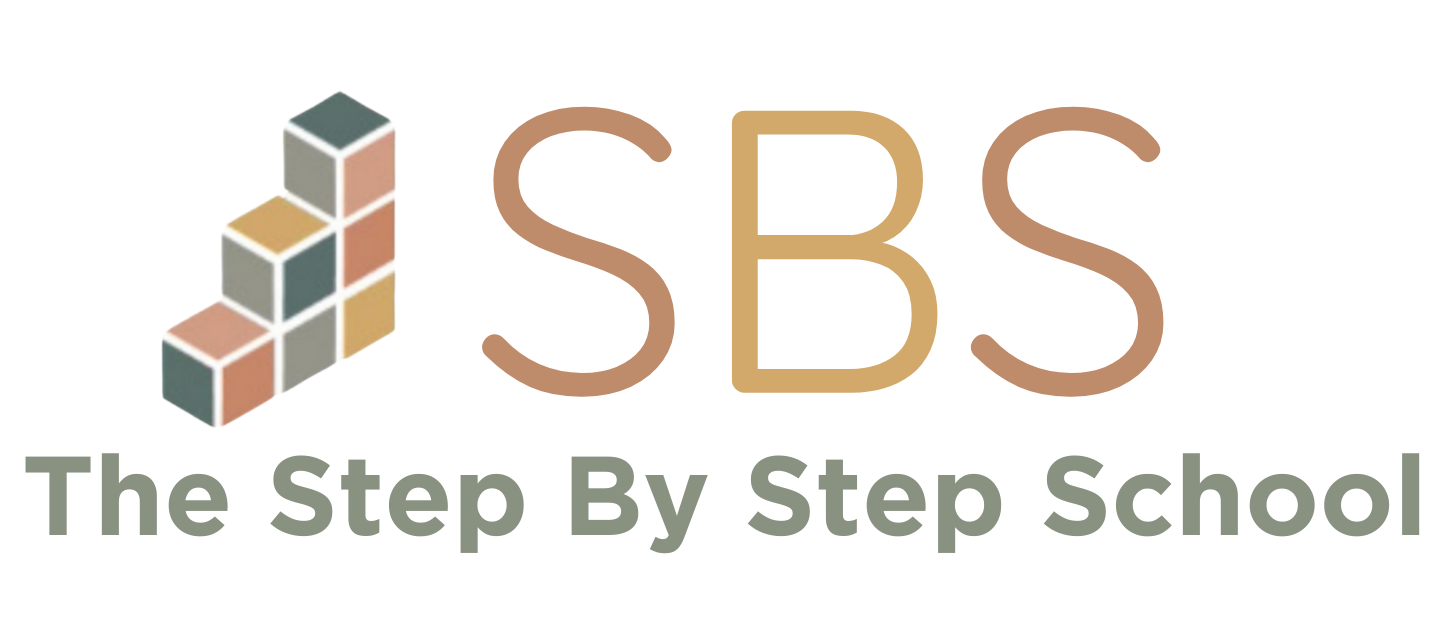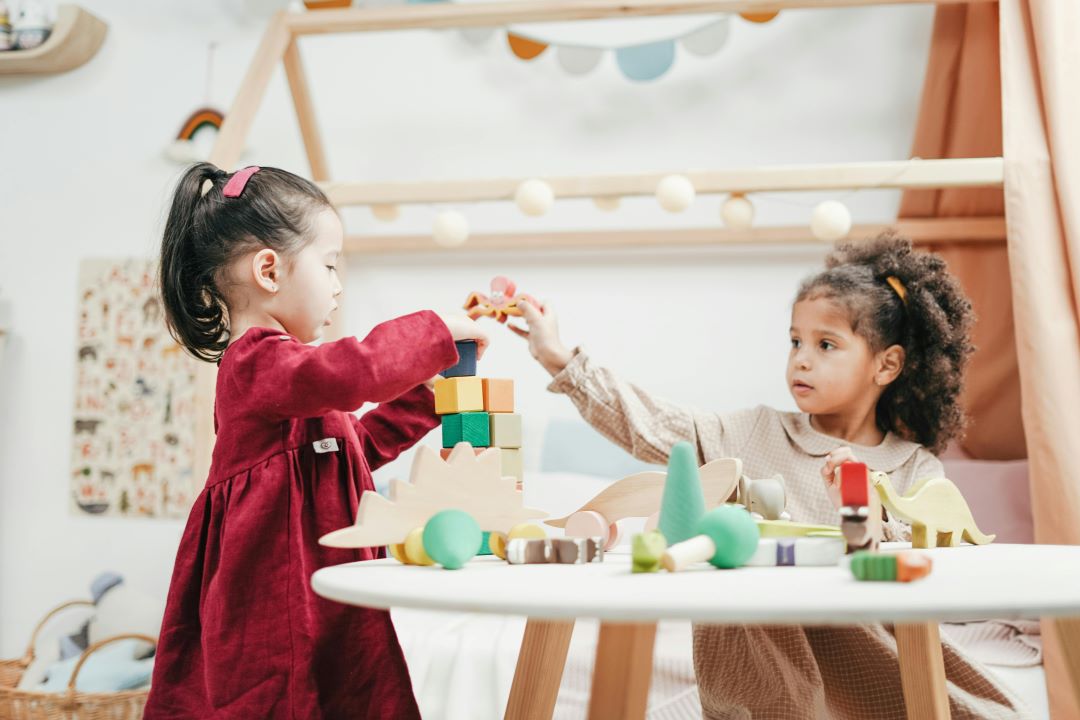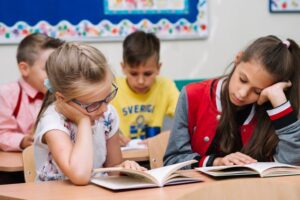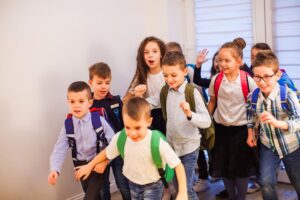Preschool is often a child’s first structured social environment outside the home. While academic learning is important, social development plays an equally vital role during these early years. In fact, strong social skills are one of the biggest predictors of long-term success in school and life.
If you’re considering preschool programs in Hudson, Monroe, or surrounding areas, you might be wondering: How are social skills taught at such a young age? And why do they matter so much?
Let’s explore the importance of social skills in preschool and how experienced educators nurture them through everyday experiences.
What Are Social Skills in Preschool?
Social skills refer to the ability to interact with others in respectful, cooperative, and meaningful ways. In a preschool setting, these include:
-
Sharing and turn-taking
-
Listening and responding
-
Empathy and understanding emotions
-
Following group rules and routines
-
Conflict resolution
-
Asking for help appropriately
These are skills we often take for granted, but they’re not automatic. Children must be taught how to function in group settings and build relationships. Preschool offers the ideal environment to begin practicing and refining these essential life skills.
Why Social Skills Matter in Preschool
The preschool years are a crucial period for brain development and emotional learning. Research from the Harvard Center on the Developing Child shows that early experiences shape how children learn to navigate social situations, handle emotions, and interact with others.
Here are some of the long-term benefits of learning social skills in preschool:
-
Stronger peer relationships – Children who develop empathy and communication skills make friends more easily.
-
Better emotional regulation – They’re better equipped to express frustration, resolve disagreements, and manage big feelings.
-
Improved classroom readiness – Preschoolers who can listen, wait their turn, and follow instructions are more prepared for kindergarten.
-
Higher academic achievement – Social-emotional skills directly support focus, motivation, and problem-solving.
In Hudson and Monroe, many preschool programs recognize the value of social learning and include it as part of their daily curriculum.
How Preschool Teaches Social Skills
Social learning in preschool doesn’t happen in isolation—it’s woven into every part of the day. Let’s look at how these skills are taught in a typical classroom setting.
1. Through Guided Play and Group Activities
Play is the primary language of preschoolers. Structured playtime offers countless opportunities for cooperation, negotiation, and problem-solving.
In both Hudson and Monroe preschools, teachers often set up centers that encourage small-group interaction—like building blocks, pretend play, and cooperative games. During these activities, children naturally learn how to share, ask politely, and include others.
Teachers stay nearby to model language, offer prompts, or gently mediate when conflicts arise.
2. Through Daily Routines
Preschool routines like circle time, snack time, and clean-up build consistency and expectations. These repeated patterns help children understand group behavior, develop patience, and contribute to a shared community.
For example, waiting for a turn during story time teaches self-control. Passing snacks encourages sharing. Cleaning up builds a sense of responsibility. In this way, routines support both social and emotional development.
3. Through Emotional Coaching and Role-Modeling
Preschool teachers do more than supervise—they actively coach children through social and emotional moments. When a child is upset or frustrated, teachers use calm, age-appropriate language to help them name their feelings and work through them.
This emotional literacy supports empathy and communication. Children begin to recognize emotions in themselves and others, which is key to developing strong social bonds.
Programs like those in Hudson and Monroe often use visual aids or feeling charts to support this kind of learning.
4. Through Stories and Songs
Storybooks and songs provide another avenue for teaching social behavior. Many preschool programs include books with characters learning to share, cooperate, or manage big emotions.
After reading, teachers guide discussions like, “How do you think that character felt?” or “What could they have done differently?” These conversations help children connect with real-life situations and practice empathy.
5. Through Positive Reinforcement
When children demonstrate positive social behaviors—such as helping a friend or using kind words—teachers offer praise and encouragement. This reinforcement motivates children to repeat those behaviors and builds confidence.
Simple recognition like “Thank you for using gentle hands” or “I love how you waited your turn” reinforces good habits without pressure or shame.
Social Learning in Local Preschool Programs
In Hudson and Monroe, high-quality preschools prioritize social-emotional development alongside academics. Programs like The Step by Step School incorporate social learning into daily life through thoughtfully designed routines, trained staff, and age-appropriate materials.
Parents can also support this learning at home by modeling respectful communication, encouraging playdates, and reading books about feelings and friendship.
FAQs About Social Skills in Preschool
1. Why are social skills so important in preschool?
Social skills help children build friendships, express emotions, solve conflicts, and follow group expectations. These abilities support future success in school and relationships.
2. How does preschool help teach social skills?
Preschool teaches social skills through guided play, daily routines, emotional coaching, and structured group activities. Teachers model behavior and use positive reinforcement.
3. Can my child still develop social skills if they’re shy?
Absolutely. Preschool offers a supportive environment for shy children to gradually build confidence, observe peers, and practice social interaction at their own pace.
4. What are some examples of social-emotional learning in preschool?
Examples include sharing toys, taking turns, using words to solve problems, recognizing emotions, and helping classmates. These are all part of daily preschool experiences.
5. What should I look for in a preschool that supports social skills?
Look for caring teachers, small group activities, a structured routine, and programs that focus on emotional development and peer interaction. Visit schools in Hudson or Monroe to observe firsthand.









